The Weekend Australian album reviews, November 2012: Spencer P. Jones, Crystal Castles
Two album reviews for The Weekend Australian, published in November.
++
Spencer P. Jones and The Nothing Butts – Spencer P. Jones and The Nothing Butts
For Australian rock fans, this supergroup is a match made in heaven: two members from Beasts of Bourbon and two from The Drones combining to make a beautiful racket.
On the group’s self-titled debut, the best of both bands can be heard: smart lyricism, enviable energy, finely tuned ears for melody and fantastic guitar sounds.
Drones leader Gareth Liddiard doesn’t sing here, but his sonic fingerprints are all over these nine tracks: spiralling natural harmonics, whammy-bar flexes and overwhelming klaxon-call effects in the coda of ‘Freak Out’. Removed from the context of his masterful songwriting – Jones is the only lyricist here – it’s apparent exactly how exceptional and valuable Liddiard’s guitar playing is: no other rock guitarist in the world sounds like he does. The noise is enthralling.
‘When He Finds Out’ is the centrepiece, filled with unsubtle innuendo and stretched across eight gripping minutes: “Blood is thicker than water, your father screams and shouts / I shudder to think what he’ll do when he finds out,” sings Jones, while James Baker’s hi-hat bounces out an uneasy rhythm and Fiona Kitschin’s sparse bass notes add to the mystique. There’s no humour here, just unresolved tension: the extended guitar freak-out is effectively a stand-in for a violent confrontation. Fearsome stuff.
Elsewhere, titles such as ‘When Friends Turn’ and ‘Duplicity’ hint at the headspace Jones was in while writing. Not a second is wasted: at 39 minutes, the album feels tantalisingly brief and demands repeated listens. This is an absorbing and cathartic collection of songs performed by four accomplished musicians. Not to be missed.
Label: Shock
Rating: 4.5 stars
++
The third full-length album released by this young Canadian electronic duo lacks the immediate sonic punch that made their first two albums such compelling listens.
It’s their darkest set yet, but that isn’t such a bad thing. It shows that producer Ethan Kath and vocalist Alice Glass seek artistic growth, and that they’re not content to stay within their comfort zone.
With their 2008 self-titled debut, Crystal Castles emerged with a fully formed sound that merged synth-led pop ideals with ugly, distorted chiptune sounds, born from Kath’s experimentation with bending circuitry. The music they produced was unique four years ago and remains so.
As with previous releases, the vocals on III often take on an eerie quality, as Glass rarely sings without the aid of pitch-shifting effects. Those few phrases that are allowed to penetrate through the wash of sound are stark and blunt: “Catch a moth, hold it in my hand / Crush it casually,” she sings sweetly on ‘Affection’, yet the song ends with a cold, cyborg-like voice stating: “We drown in pneumonia, not rivers and streams.”
This merging of man and machine seems to be one of Crystal Castles’ main goals and they’re bloody good at it; most of the time there’s little sense that human beings had a hand in creating this work. They did, of course, and they undoubtedly worked hard, yet III gives off no sense of struggle. This isn’t their most accessible release – that is 2010’s II – but it’s still a fine extension of their effortless sound, at once beautiful and ugly; intentionally flawed, yet polished to near-perfection.
Label: Shock
Rating: 3.5 stars
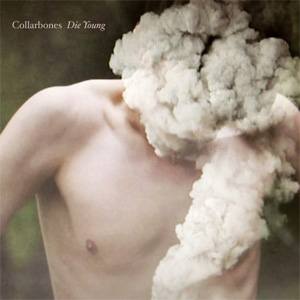 What we have here is an original and compelling take on pop music viewed through the lenses of electronica, R&B and hip-hop.
What we have here is an original and compelling take on pop music viewed through the lenses of electronica, R&B and hip-hop. The trouble with releasing a killer debut album is that it’s much harder to impress with the follow-up.
The trouble with releasing a killer debut album is that it’s much harder to impress with the follow-up.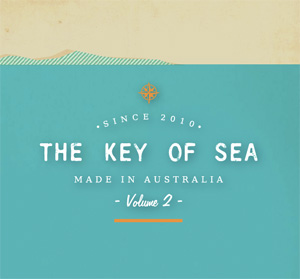 Some might say rock musicians are more readily associated with egotism than altruism, yet this collection is the second in a series that seeks to buck that stereotype.
Some might say rock musicians are more readily associated with egotism than altruism, yet this collection is the second in a series that seeks to buck that stereotype.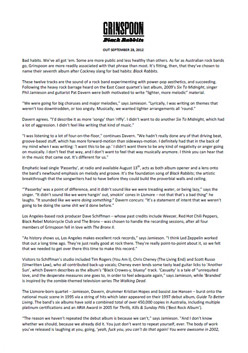
 Four years between albums is plenty of time for younger competitors to snatch the crown from Australia’s electronic music kings.
Four years between albums is plenty of time for younger competitors to snatch the crown from Australia’s electronic music kings.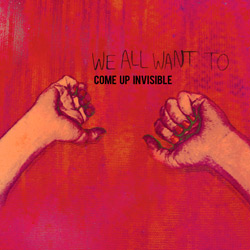 This is a messy album in the best way possible. The music created by Brisbane four-piece We All Want To swings back and forth between charming indie pop and rock with jagged edges.
This is a messy album in the best way possible. The music created by Brisbane four-piece We All Want To swings back and forth between charming indie pop and rock with jagged edges.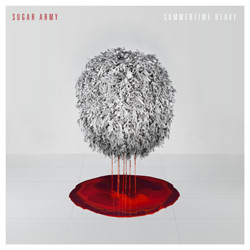 Through change comes artistic progress. On its second album, Perth-based rock act Sugar Army has streamlined the sound out of necessity: the band’s bassist joined fellow Perth group Birds of Tokyo, reducing the quartet to a trio.
Through change comes artistic progress. On its second album, Perth-based rock act Sugar Army has streamlined the sound out of necessity: the band’s bassist joined fellow Perth group Birds of Tokyo, reducing the quartet to a trio. Die! Die! Die! – Harmony
Die! Die! Die! – Harmony 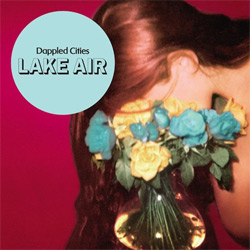 Four albums into a career that blossomed with the release of second LP Granddance in 2006, Sydney quintet Dappled Cities here present their most accomplished collection. Granddance brought the band into the national consciousness via a string of outstanding singles; Lake Air is a complete work, one so good it deserves to take Dappled Cities much further.
Four albums into a career that blossomed with the release of second LP Granddance in 2006, Sydney quintet Dappled Cities here present their most accomplished collection. Granddance brought the band into the national consciousness via a string of outstanding singles; Lake Air is a complete work, one so good it deserves to take Dappled Cities much further.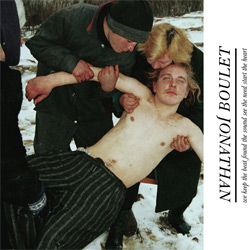 The young man at the heart of this band has been worth watching since he emerged in late 2009. Jonathan Boulet’s self-titled, self-recorded, self-produced debut was bursting at the seams with ideas (he played all the instruments and sang, too.) Boulet’s songwriting didn’t always hit the mark, but he certainly showed promise.
The young man at the heart of this band has been worth watching since he emerged in late 2009. Jonathan Boulet’s self-titled, self-recorded, self-produced debut was bursting at the seams with ideas (he played all the instruments and sang, too.) Boulet’s songwriting didn’t always hit the mark, but he certainly showed promise.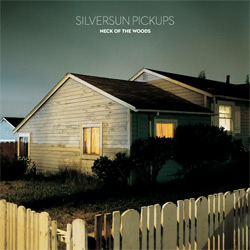 Where many rock bands fail, Silversun Pickups succeed: through effective use of space, volume, melody and harmony, this Los Angeles quartet conjures unique emotions within the listener that make the timeworn combination of guitars, bass, drums and vocals seem fresh.
Where many rock bands fail, Silversun Pickups succeed: through effective use of space, volume, melody and harmony, this Los Angeles quartet conjures unique emotions within the listener that make the timeworn combination of guitars, bass, drums and vocals seem fresh. These 10 sparsely adorned songs represent a significant shift for Perth-based songwriter Joe McKee, who fronted the West Australian quartet Snowman for eight years until their amicable split in 2011.
These 10 sparsely adorned songs represent a significant shift for Perth-based songwriter Joe McKee, who fronted the West Australian quartet Snowman for eight years until their amicable split in 2011.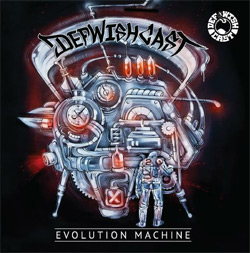 What we now take for granted once existed only on the fringes of popular music.
What we now take for granted once existed only on the fringes of popular music.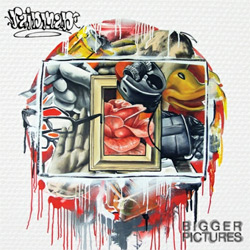 Too often, young Australian rappers fall into the same lyrical pitfall: with little life experience to speak of, they instead take the dubious advice of “write what you know” too literally by couching their artistry in recording alcohol and drug-fuelled tales ad nauseam.
Too often, young Australian rappers fall into the same lyrical pitfall: with little life experience to speak of, they instead take the dubious advice of “write what you know” too literally by couching their artistry in recording alcohol and drug-fuelled tales ad nauseam.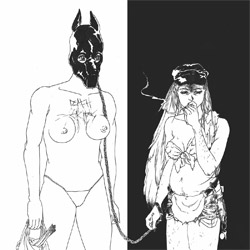 By combining the ethos and aesthetics of punk-rock and electronica with hip-hop, Californian trio Death Grips have established an entirely unique sound.
By combining the ethos and aesthetics of punk-rock and electronica with hip-hop, Californian trio Death Grips have established an entirely unique sound. Does the world really need another guitar-pop band? Brisbane has proved fertile ground for the genre of late: the Grates, the John Steel Singers and Yves Klein Blue all achieved national notoriety in recent years mining this rich vein.
Does the world really need another guitar-pop band? Brisbane has proved fertile ground for the genre of late: the Grates, the John Steel Singers and Yves Klein Blue all achieved national notoriety in recent years mining this rich vein.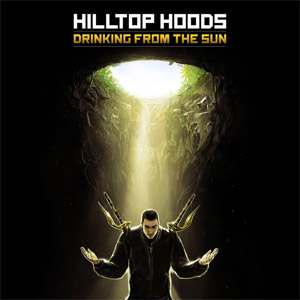 The best track on Hilltop Hoods’ sixth album, ‘Rattling the Keys to the Kingdom’, is built on the familiar lyrical trope of rap group pitting itself against its many competitors.
The best track on Hilltop Hoods’ sixth album, ‘Rattling the Keys to the Kingdom’, is built on the familiar lyrical trope of rap group pitting itself against its many competitors.